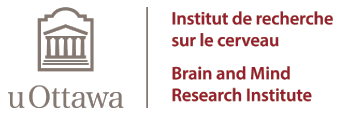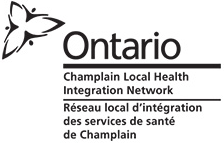
Tips for All Canadians
Meet with a Financial Advisor.
Finances are complicated at the best of times, let alone if you have a special needs child. Poor financial planning can be disastrous. Consider seeking a consultation with a financial advisor, who can help look at your specific financial situation, and come up with a financial plan that makes sense for your family. There are different types of professionals who claim to provide financial help. It is best to find a financial planner that you pay directly yourself, as opposed to one that may be biased (e.g. such as receiving commissions from selling you products that you may not need).
How to find a financial planner?
- Consider looking for a designation such as certified financial planner (CFP) and registered financial planner (RFP). To find one, visit http://www.cfp.net
Disability Tax Credit (DTC)
The DTC gives you a tax deduction on expenses related to your loved one’s disability when you file your yearly income tax.
For more information: http://www.cra-arc.gc.ca
Registered Disability Savings Plan (RDSP).
The RDSP allows you (and others such as family and friends) to contribute money into a long-term financial plan for your special needs beneficiary. There is no cost to open an RDSP, and the financial benefits begin right away.
Benefits include:
- RDSP recipients can take advantage of the Canada Disability Savings Grant. $1,500 in personal contributions can trigger a grant of up to $ 3,500 each year to a maximum lifetime grant of $ 70,000.
- Those living on less than $30,000 annually will receive $1,000 each year automatically for up to 20 years through the Canada Disability Savings Bond.
- Disability benefits like ODSP are not affected by having an RDSP.
- The person with the plan can choose what to do with the money–there are no restrictions on how the money is spent.
To be eligible the beneficiary (the person that the plan is meant for):
- Must be under 60 years of age
- Live in Canada
- Already be eligible for the Disability Tax Credit
- Have a Social Insurance Number
For more information: http://www.cra-arc.gc.ca
Have a Will
See a lawyer and ensure that you have a good will.
Have Disability and Life Insurance
Make sure you have disability and life insurance through your workplace, otherwise purchase your own.
Henson Trust.
A Henson Trust is for situations where a disabled children is unable to hold assets in order to continue receiving government benefits. It is a legal structure that allows the special needs beneficiary to continue receiving government social assistance. It ensures that inherited funds are managed properly following the death of parents or guardians. It is a special trust that gives the trustee discretion on how much income (if any), the beneficiary (the disabled person) receives.
Income Support Programs
Does your loved one have a disability that prevents him/her from working?
- If so, consider applying for a program that provides income support. Depending on your province, there are specific programs. For those in Ontario, there is the Ontario Disability Support Program (ODSP).
- Be careful about services that offer to fill out forms with you for a fee. It can be tempting to want to pay a professional to fill out applications for income support. Be very careful, as there are some services that take advantage of people, and charge excessive fees or ongoing fees for this service.
- The office of your MPP (member of provincial parliament) can sometimes provide assistance with the ODSP (as the ODSP is a provincial service).
Do you want to ensure savings for college or university?
- If so, consider the Canada Study Grant for the Accommodation of Students with Permanent Disabilities funded by the Government of Canada.
- Grants can provide up to $8,000 per loan year to help pay for exceptional education-related costs associated with a disability.
- Costs may include tutors, oral or sign interpreters, attendant care for studies, specialized transportation (to and from school only) learning disability assessments, note takers, readers, etc.
Registered Education Savings Plan (RESP).
Would you like to save money for your child’s one’s post-secondary school education? If so, consider an RESP.
Benefits of an RESP:
- Taxes on the earnings inside an RESP are payable in the hands of the child and are deferred until the child withdraws the money while attending a post-secondary institution.
- A lifetime maximum of $50,000 can be contributed per child.
- An RESP also offers the added incentive of free government money in the form of the Canada Education Savings Grant (CESG).
Services / Supports in Ontario for Children
Assistance for Children with Severe Disabilities (ACSD)
Are you a parent caring for a child with a severe disability?
- If so, you might qualify for financial support through the ACSD Program.
Benefits
- Depending on the income and size of the family, the program may provide between $25 and $500 a month to help with costs, such as:
- Travel to doctors’ appointments, hospitals and other appointments related to the child’s disability
- Special shoes and clothes
- Parental relief such as respite
- Wheelchairs and other assistive devices, including repairs
- Hearing aids and batteries
- Prescription drugs
- Dental and vision care, including eyeglasses
For more information http://www.children.gov.on.ca/htdocs/English/specialneeds/disabilities.aspx
Special Services at Home (SSAH)
Family members are often the primary caregivers for children with a developmental or physical disability. SSAH provides funding to families so that they can purchase supports not available elsewhere within their community—for special services within or outside the family home.
Benefits include:
- Family relief and respite. In some areas, it’s hard to find special needs caregivers. This funding can be used to pay family members (but not parents) to care for a child to give parents a break (respite care).
- Programs like special summer camps, which are not covered by other community services.
- Developmental services, like paying someone to help the child develop skills.
For families to be eligible, the child with a disability:
- Must live in Ontario and be under 18 years of age
- Have an ongoing developmental and/or physical disability as documented by a physician
- Be living at home with their family (or if not living at home, not be receiving help from other residential services)
- Require more support than most families are able to provide
For more information
- Special Services at Home Program Guidelines
- http://www.children.gov.on.ca/htdocs/English/specialneeds/specialservices/guidelines.aspx
Empowered Kids Ontario (EKO)
Formerly The Ontario Association of Children’s Rehabilitation Services, EKO provides supports and services so that children with a disability and their families can live their best lives. EKO collaborates with a wide range of service providers, researchers, clinicians, members, partners and government representatives. All its members are government-funded organizations providing services in the “ecosystem” of child development and rehabilitation, based on needs within a specific community. Among the services provided:
- Physical and Occupational Therapy
- Speech and Language Therapy
- Psychology and Behavioural Therapy
- Respite support, family education
- Service coordination
- Developmental Pediatrics
- Adaptive Augmentative Communication
- Special services at home
For more information,
- EKO website listing agencies in different areas in Ontario https://empoweredkidsontario.ca/en/memberdirectory
Services / Supports in Ontario for Adults
Developmental Services Ontario (DSO)
DSO helps adults with a developmental disability and their families find services and supports within their communities such as:
- Residential supports
- Caregiver respite
- Community participation supports (such as for volunteering or employment)
- Professional and specialized services
- Access to the Passport Program and person-directed planning
Find your closest DSO agency
Passport Program
The Passport Program is funded by the Ministry of Community and Social Services (MCSS). It helps adults with a developmental disability be involved in their communities and live as independently as possible by providing funding for:
- Community participation services and supports,
- Activities of daily living
- Person-directed planning.
- Caregiver respite services and supports for primary caregivers of an adult with a developmental disability.
Criteria to be eligible include:
- Individuals aged 18 and older;
- Young adults who are still in school
Eligible individuals may be able to receive up to $5,000 annually in direct funding.
For more information: https://passportfundinghnr.ca/en/
For More Information
The Inspiring Possibilities Estate Planning Guide, developed by Community Living Ontario, is intended for families and their loved ones who have a disability to ensure that current and future financial arrangements are respected. Topics discussed include Will and Trust planning, the Ontario Disability Support Program (ODSP), the Disability Tax Credit (DTC) and the Registered Disability Savings Plan (RDSP).
http://www.PlanInspiringPossibilities.ca
The P4P Planning Network
Numerous services and resources about future planning including financial planning.
They have a nice Action Guide for Funding and Support in Ontario
http://www.planningnetwork.ca/en-ca/Resources/27480/Action-Guide-to-Figuring-Out-Funding-and-Support
About this Document
Written by the mental health professionals at the Children’s Hospital of Eastern Ontario (CHEO). Reviewed by the Mental Health Information Committee at CHEO.
License
Under a Creative Commons License. You are free to share, copy and distribute this work as in its entirety, with no alterations. This work may not be used for commercial purposes. Full license here: http://creativecommons.org/licenses/by-nc-nd/2.5/ca/
Disclaimer
Information in this fact sheet is meant only to give general information. We do not take any responsibility for any loss, injury, claim, liability or damage of any kind resulting from the content. Always contact an accounting, tax or health professional for more information on financial assistance.






